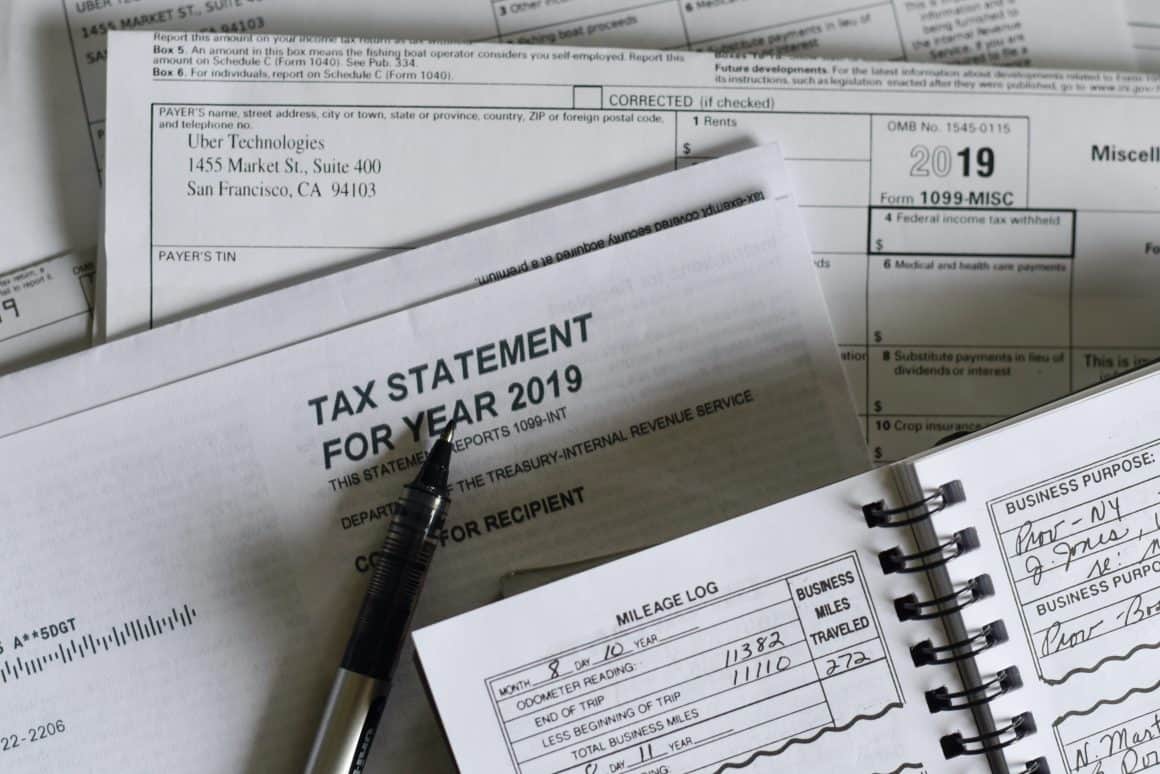The Forkast reader community is among the most accomplished and sophisticated in the world of blockchain and other emerging technologies. When you speak, we listen.
In response to a recent analysis we published on IRS guidelines for cryptocurrency and where the agency fell short, one of our readers — Vamshi Vangapally, CEO and co-founder of BearTax — reached out to us to highlight an additional area in need of greater clarity: crypto staking.

As a core tenet of decentralized finance, staking ensures the smooth operation of a blockchain by providing incentives for users to hold their assets in a crypto wallet. The concept of staking is related to “proof of stake” (PoS), and it therefore involves only newer coins like NEO, Stellar, Ontology, VeChain and Tezos that rely on PoS. (Bitcoin, the world’s most popular cryptocurrency, relies on a “proof of work” system and therefore does not involve staking.)
Staking services have become increasingly mainstream, with exchanges such as Binance, Coinbase and Kraken offering exchange staking, in addition to other, newer platforms that function as dedicated staking service providers.
But despite cryptocurrency staking’s growing popularity, questions over its taxation have largely been neglected by the U.S. Internal Revenue Service. Vangapally, whose company specializes in tax filing software for bitcoin and other cryptocurrencies, points out that this may either be due to how difficult it is for government policy to keep pace with a new and rapidly evolving industry, or the possibility that the IRS is intentionally holding off on issuing regulation until the protocol has matured.
This is not to say that the IRS has been reluctant to deal with bitcoin and other cryptocurrencies as a whole. Its previous guidelines laid out a rough framework for the taxation of crypto as capital. As the April tax season approached, however, the IRS found itself facing questions and growing concerns from the industry as well as investors about the specifics of crypto taxation.
Last month, the agency held an invite-only summit in Washington D.C. to meet with cryptocurrency industry representatives to air issues. Summit participants reported that agency officials mostly listened but did acknowledge the shortcomings of classifying cryptocurrency as “property.” The agency also proposed a “central depository” to streamline compliance and took under consideration various compliance challenges that industry representatives pointed out.

Through the summit and dialogue with the industry, the IRS has indicated its strong interest in working with stakeholders to provide better crypto tax guidelines. However, its present lack of clarity in differentiating crypto staking from current taxation means that it would be difficult for current users to profit from it, as any resultant gains would be cancelled out by the taxes levied.
Still, it is important to recognize the potential of staking, particularly as a means to scale cryptocurrencies, according to Vangapally. This nascent protocol is one of the most promising features of blockchain technology, and American crypto investors would do well to understand the concept regardless of this year’s tax planning — which now has a filing deadline extended by three months, to July 15, due to the coronavirus pandemic.
The following Forkast interview with Vangapally has been edited and condensed.
How significant or important is staking to the decentralized finance space?
Staking is the foundational core upon which decentralized finance (DeFi) stands. It rewards investors for locking up their assets, which in turn, powers and secures the network. In the last few years, we’ve witnessed a paradigm shift within DeFi as more investors turn to PoS (proof of stake) coins. As a result, over $1 billion in total assets is locked in DeFi to date. Now, the mainstream is starting to catch wind of this increased interest, with exchanges extending staking services on their platforms.
In DeFi, staking pools and staking-as-a-service providers take on the role of the traditional banks, acting on behalf of investors by running nodes.
Ironically, the primary ambition of DeFi platforms is to supplant the traditional banking sector and decentralize it — removing the impediments of costly intermediaries and providing banking for the unbanked. An essential function of many banks is to hold money, lend money and earn interest for savers. Staking is a savings tool as much as it is a governance tool, making it a significant part of DeFi.
Why do you think the IRS has neglected to address crypto staking in their guidelines? Does it stem from a gap in their understanding of the technology?
Yes. It stems from a lack of understanding due to the fact the industry is incredibly dynamic and continually evolving, so it can be hard for policy to keep pace. Regardless, staking must be addressed, as taxpayers are potentially missing out on long-term gains due to confusion.
It could also be a case of the IRS deferring [regulation] until it matures sufficiently. Staking is still very much in its nascency. Until all [its] nuances and quirks are adequately addressed, we may not see IRS guidance on the matter.
That said, the IRS is starting to come to terms with new technology emerging within the sector. The U.S. government agency has already shown its commitment to improving its understanding by hosting the IRS summit on March 3.
With any luck, further guidance will be released on forks, airdrops, and staking, about whether these should be treated as taxable income at the time of acquisition. Clarity is also required to address the determination of fair market value for these cryptocurrencies.
At what stage of the crypto staking process are taxes levied, and why is this an appropriate or inappropriate stage (i.e., short-term vs. long-term)?
The staking process is not dissimilar to the average bank savings account. A bigger deposit will result in additional interest. But while the IRS openly acknowledges this within its tax guidance, it fails to make any allowances for staking.
Under the current IRS guidance, interest earned on basic crypto lending is levied through income tax rates. However, within the staking systems, a temporary token is often issued to the user. Conversion of these temporary tokens cause short term gains to be levied at a taxable rate of 22-37%, especially when cashing out of the lending or staking contract, as that’s when the temporary token is exchanged to an actual token.
Let’s take ETH 2.0 as an example. If we go by prevailing estimates, a return of about 3-5% per annum could be expected. Under the guidelines offered in October, unless you are getting a 10% return above the gains you make via staking, remaining profits will amount to little more than payable tax.

Under current IRS guidelines, is it worth it to engage in crypto staking even with the taxes due?
Unless you are getting a return in excess of 7-10% above the gains you make via staking, any profits will be paid in taxes.
As a consequence, staking — under the current tax regime — is likely unsuitable for all but the most affluent or fervent crypto aficionados. This is because there are other aspects of staking which may appeal other than merely turning a profit — such as influencing the direction of the network.
Of course, if you are fortunate enough to earn the excess needed to cover exorbitant taxes, then yes, staking is worth it. If not, it may just prove to be a burdensome and costly venture until IRS guidance is modernized.
How will these guidelines discourage people from staking?
Most of those involved in staking and lending are early adopters looking at an early opportunity to get involved, so for now earning an income may not be the main priority. Their interest would likely be in testing the protocols and platforms to see how they can be scaled. They would be less interested and not discouraged by the limitations of the guidance, although as guidance evolves, returns can be amended and filed.
Having said that, those looking into staking as a means to make money will undoubtedly be turned off by the burdensome tax regimen.
How would a decrease in staking affect the cryptocurrency industry as a whole?
Overall, a decrease in staking may result in the protocol being perceived as a failed experiment. Therefore, any future attempts to scale cryptocurrency via PoS could fall on deaf ears.
It would mostly impact staking coins such as NEO, VeChain, Tezos, and eventually, ETH 2.0, which would inevitably witness diminished network security and increased centralization, among other issues.




